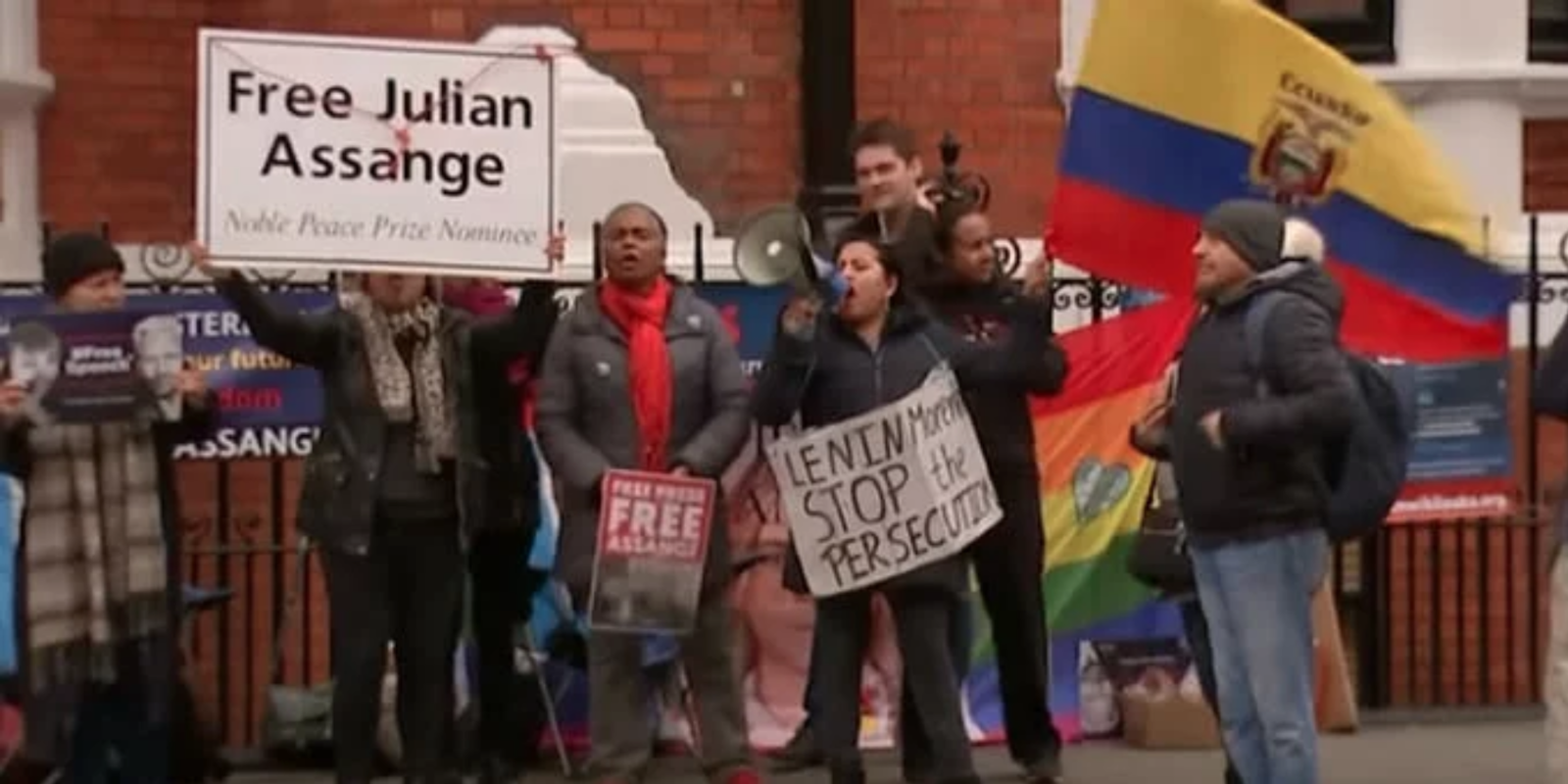WikiLeaks revealed on Wednesday that material from an invasive state spying operation conducted against its founder Julian Assange ended up in the hands of a gang in Spain, who threatened to publish it if the transparency organization didn’t pay up.
The organization’s editor-in-chief Kristinn Hrafnsson appeared alongside lawyer Jennifer Robinson and former consul of Ecuador Fidel Narváez at a press conference in London, to explain that Spanish police were now investigating the matter.
Hrafnsson described how, ten days ago, unnamed individuals demanded $3.4 million in exchange for a data bundle that included video, photographs, privileged legal documentation, lawyer’s notes, personal communications, and a confidential medical report.
The criminals told WikiLeaks that their offer was a “rather good deal because they had offers of $9 million from various outlets for the entire material” bundle.
Hrafnsson explained that he then traveled to Spain and secretly recorded an in-person meeting with four members of the gang, where he was shown the full data haul and learned the identity of one of the criminals. Spanish police then carried out a sting operation against those involved.
“Extortion is a very serious matter but of much greater concern to me is this material-gathering and spying on Julian Assange by the [Ecuadorean] government against an individual who was granted asylum and full protection,” Hrafnsson said. “That is, in my opinion, not only illegal but extremely unethical.”
Lawyer Robinson emphasized how the invasion of privacy, which resulted in a serious breach of lawyer-client privilege, could impede and undermine Assange’s ability to defend himself legally.
Assange has resided in the Ecuadorian embassy in London since fleeing there in 2012 to avoid extradition to the United States, where he has been the subject of a federal investigation since 2010, when WikiLeaks published thousands of military and diplomatic cables.
The editor-in-chief went on to describe how Assange lived a “Truman Show existence” and criticized afresh the invasive nature of the surveillance program at the embassy as designed to give rise to the WikiLeaks founder’s eventual expulsion.
Some of the material appeared to have come from government-owned cameras and audio recorders installed in London’s Ecuadorian embassy last year, part of a multi-million dollar program pitched to supposedly “protect” Assange.
Just how that surveillance data collected by the Ecuadorian government ended up in the hands of extortionists in Spain remains a mystery and a pertinent question that Hrafnsson told reporters he would not speculate on.
Hrafnsson did say, however, that WikiLeaks would publish a copy of the recording of the meeting with the extortionists in the coming weeks and that “will possibly cast more light” on how the situation came to be.


